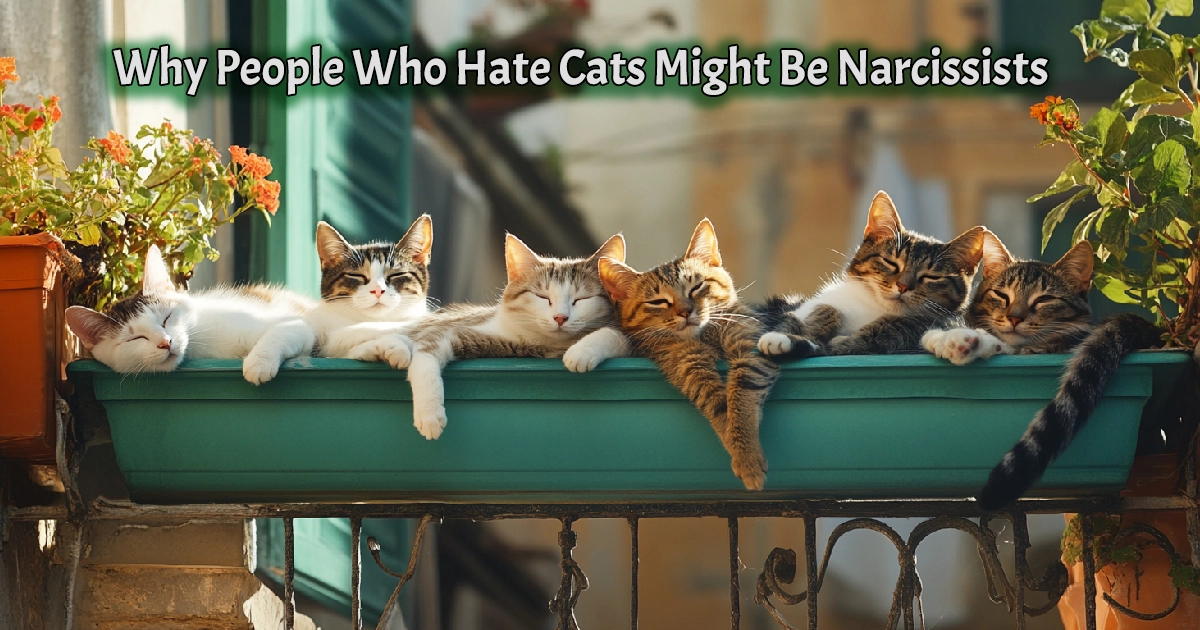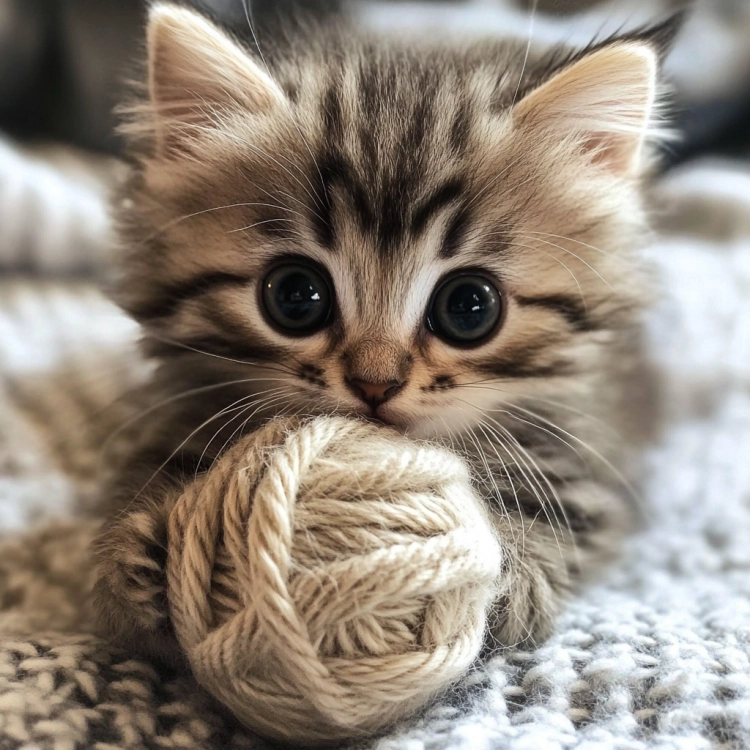Why People Who Hate Cats Might Be Narcissists
Why People Who Hate Cats Might Be Narcissists
Have you ever noticed how some people can’t stand cats? Sure, not everyone has to love our furry feline friends, but there’s a certain subset of people who actively despise them. Could it be more than just a preference? Some researchers suggest there might be a psychological correlation between cat haters and narcissism. But why is that? Let’s talk about it.
Cats and Control: The Psychological Tug-of-War
Unlike dogs, who are often eager to please and follow commands, cats march to the beat of their own drum. They are independent, self-reliant, and don’t cater to anyone’s whims. This is precisely what makes them endearing to many, yet intolerable to some. Narcissistic individuals thrive on control and dominance, and cats simply don’t play along with that game.
Understanding Narcissism
Narcissism is characterized by traits like grandiosity, entitlement, a need for admiration, and a lack of empathy. Narcissists crave situations where they can exert power and be in control. When faced with an animal that refuses to bend to their will—like a cat—it can trigger feelings of frustration, rejection, or even anger.
Why Cats Threaten the Narcissistic Mindset
Cats don’t care if you want their attention. They won’t come running just because you called their name, and they certainly won’t perform tricks to earn your praise. This defiance of control can be a direct challenge to a narcissist’s need to feel dominant. While dogs’ loyalty and trainability make them easy to command, cats’ aloofness and self-assured nature can be perceived as a threat to someone who craves obedience.
Cats as Mirrors to Human Behavior
Cats have an almost uncanny ability to reflect people’s behavior back at them. When you’re calm and respectful, they’re more likely to engage positively. If you’re forceful or overbearing, they’ll likely retreat or respond with aggression. This reflective nature can act as a mirror to people’s own insecurities or control issues, making cats a problematic pet for those not comfortable with self-reflection.
Does Disliking Cats Make Someone a Narcissist?
Yes, I know that not all people who dislike cats are narcissists. Preferences for pets can be influenced by several factors, including allergies, upbringing, and personal experiences. However, for those who hold a deep-seated hatred or disdain for cats, it’s worth examining whether it’s truly about the animal—or something more rooted in their psyche.
Research shows that certain personality traits, such as grandiose and antagonistic narcissism, are often associated with a need for control, dominance, and power over others. People who score high on these traits tend to prefer pets that can be controlled or trained easily, such as dogs, and may have more negative attitudes towards independent animals like cats(Frontiers)(ResearchGate). The dislike may stem from the cat’s lack of submissiveness, which challenges their sense of superiority and control.
Studies have shown that while grandiose narcissists may have lower empathy for animals overall, they might still have higher attachment to pets that validate their self-image, like dogs. Cats, on the other hand, tend to do what they please and aren’t easily swayed by attempts to dominate or control them, which can be frustrating for someone with narcissistic tendencies(Psychology Today).
Thus, while a general dislike of cats doesn’t automatically indicate narcissism, a strong aversion or hatred towards them could be linked to deeper psychological traits. It might not be about the cat itself, but rather what the cat symbolizes—an entity that refuses to bend to someone’s will. This lack of control and autonomy can be triggering for narcissists who crave submission and admiration from others, be they humans or animals.
In essence, it’s not about hating cats as much as it is about what the cat represents: freedom, independence, and an unwillingness to be dominated. So, while it’s not a definitive marker of narcissism, a visceral hatred for cats could reflect a personality that struggles with these traits.
Embracing the Feline Free Spirit
Cats teach us a valuable lesson: sometimes, you have to let go of control. They remind us that relationships—whether with animals or humans—are built on mutual respect and autonomy. Understanding why some people dislike cats can shed light on broader personality traits and help us approach these individuals with greater empathy.
So, is there a link between cat haters and narcissism? For some, perhaps. Cats’ resistance to being controlled or dominated can challenge narcissistic tendencies, leading to an aversion to these independent creatures. But maybe that’s what makes cats so special—they are, in a way, the ultimate test of patience, acceptance, and humility.
If you hate cats, perhaps you should look within to see why. It might not be the cat’s aloofness that irks you, but rather the way it challenges your need for control. In learning to appreciate the feline free spirit, you may just find a little more peace within yourself. After all, embracing what you can’t control can be the first step towards growth and self-awareness.




